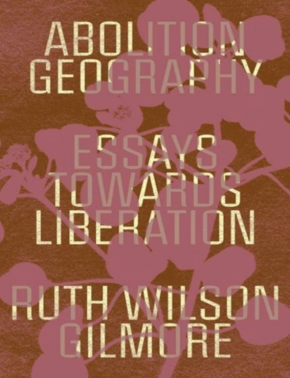Brenna Bhandar
Posts tagged with Brenna Bhandar
Archive
Author
- administrador
- adrianabarbosa
- Alícia Gaspar
- arimildesoares
- camillediard
- candela
- catarinasanto
- claudiar
- cristinasalvador
- franciscabagulho
- guilhermecartaxo
- herminiobovino
- joanapereira
- joanapires
- keitamayanda
- luisestevao
- mariadias
- marialuz
- mariana
- marianapinho
- mariapicarra
- mariaprata
- martacacador
- martalanca
- martamestre
- nadinesiegert
- Nélida Brito
- NilzangelaSouza
- otavioraposo
- raul f. curvelo
- ritadamasio
- samirapereira
- Victor Hugo Lopes
Data
- April 2025
- March 2025
- February 2025
- January 2025
- December 2024
- November 2024
- October 2024
- September 2024
- August 2024
- July 2024
- June 2024
- May 2024
Tags
Most read
- AFROTOPIAS: artistas do pós-independência 17 Abril I Bruxelas
- 7th Queering Afro-Luso-Brazilian Studies Conference
- António Jacinto: Poeta e Guerrilheiro
- PÓS-MUSEU: 'A' de Ausência
- Uma Ecologia Decolonial - Conferência por Malcom Ferdinand
- Hanami, a primeira longa-metragem da realizadora Denise Fernandes, Cabo Verde
- Paisagens de Fogo: Uma história política e ambiental dos grandes incêndios em Portugal
- Curadoras macaenses da Bienal de Veneza apresentam nova mostra
- Programa de apoio à pesquisa das coleções fílmicas da Cinemateca Portuguesa-Museu do Cinema (2025)
- Lançamento do livro GAIA E FILOSOFIA de Lynn Margulis
 ‘Abolition is figuring out how to work with people to make something rather than figuring out how to erase something. Abolition is a theory of change, it’s a theory of social life.’
‘Abolition is figuring out how to work with people to make something rather than figuring out how to erase something. Abolition is a theory of change, it’s a theory of social life.’ No seu recente livro, “Colonial Lives of Property: Law, Land, and Racial Regimes of Ownership” (Duke University Press, 2018), Brenna Bhandar traça ligações entre a ocupação colonial de terras, a racialização das populações indígenas e as hierarquias coloniais, aquilo que ela define como “regimes raciais de propriedade”. Criadas durante o período colonial, as ligações insidiosas entre propriedade, posse, cidadania e raça estendem-se pelas antigas e atuais colónias, bem como pelas suas metrópoles. Ao traçar as leis contemporâneas de propriedade até às suas origens coloniais, Bhandar defende a sua centralidade nas atuais lutas antirracistas e descolonizadoras a nível internacional. A autora examina as “lógicas partilhadas de subjetividade racial e direitos de propriedade privada, que têm sido centrais para o desenvolvimento do capitalismo racial” em estudos que abrangem países como a Palestina, a Austrália, o Canadá e a África do Sul.
No seu recente livro, “Colonial Lives of Property: Law, Land, and Racial Regimes of Ownership” (Duke University Press, 2018), Brenna Bhandar traça ligações entre a ocupação colonial de terras, a racialização das populações indígenas e as hierarquias coloniais, aquilo que ela define como “regimes raciais de propriedade”. Criadas durante o período colonial, as ligações insidiosas entre propriedade, posse, cidadania e raça estendem-se pelas antigas e atuais colónias, bem como pelas suas metrópoles. Ao traçar as leis contemporâneas de propriedade até às suas origens coloniais, Bhandar defende a sua centralidade nas atuais lutas antirracistas e descolonizadoras a nível internacional. A autora examina as “lógicas partilhadas de subjetividade racial e direitos de propriedade privada, que têm sido centrais para o desenvolvimento do capitalismo racial” em estudos que abrangem países como a Palestina, a Austrália, o Canadá e a África do Sul.
